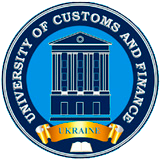EMERGENT-ADAPTIVE METHOD OF ASSESSING THE IMPACT OF THE POST-QUANTUM ENVIRONMENT ON THE INFORMATION SECURITY OF THE STATE
Abstract
The article proposes an emergent-adaptive method for assessing the impact of the post-quantum environment on the state’s information security, based on the principles of self-organization and synergy. The method aims to ensure effective responses to threats associated with the development of quantum computing, which may compromise existing cryptographic protocols such as RSA and ECC. The critical role of artificial intelligence in analyzing, forecasting, and dynamically adapting defensive systems is highlighted. During attack modeling, simulations are conducted to evaluate the impact of quantum computing on cryptographic systems, specifically assessing the resilience of key protocols against attacks by Shor’s and Grover’s algorithms. At the adaptation stage, quantum-resistant cryptographic solutions such as lattice-based algorithms, code-based schemes, and hash functions are implemented, and their effectiveness is monitored. This is followed by a threat analysis that focuses on exploring the capabilities of quantum computing to break current cryptographic systems. The next step is a vulnerability assessment that identifies the cryptographic algorithms used, such as RSA and ECC, and analyzes their resistance to quantum attacks. This is followed by an analysis of critical points and communication protocols, which includes assessing the resistance of protocols such as TLS/SSL, IPsec, VPN to possible quantum attacks. The next stage is attack simulation, which involves modeling quantum attacks to assess the likelihood of their success. The final stage is the development of post-quantum security solutions, which includes the selection and implementation of new cryptographic algorithms that are resistant to quantum attacks and their integration into existing systems. All stages are interconnected and ensure the dynamic adaptation of the system to new challenges. It has been proven that the proposed approach enhances the resilience of information systems to new threats by integrating classical and post-quantum protocols. Particular attention is given to the synergy of various security components, enabling the creation of adaptive and self-organized systems. Prospects for further research include the development of emergent models, the integration of post-quantum solutions into state information systems, and the adoption of an interdisciplinary approach to cybersecurity.
References
2. Alomari, A., & Kumar, S. Securing IoT systems in a post-quantum environment: Vulnerabilities, attacks, and possible solutions. Internet of Things. DOI: 10.1016/j.iot.2024.101132. 2024. URL: https://www.sciencedirect.com/science/article/abs/pii/S254266052400074X
3. Anantraj, I., Umarani, B., Karpagavalli, C., Usharani, C., & Lakshmi, S. J. Quantum Computing’s Double-Edged Sword: Unravelling the Vulnerabilities in Quantum Key Distribution for Enhanced Network Security. Proceedings of IEEE NELEX. 2023. DOI: 10.1109/nelex59773.2023.10420896. URL: https://www.researchgate.net/publication/378277590_Quantum_Computing's_Double-Edged_Sword_Unravelling_the_Vulnerabilities_in_Quantum_Key_Distribution_for_Enhanced_Network_Security
4. Cyriac, R., Eswaran, S., & Selvarajan, S. Quantum Computing in Cryptographic Systems. Journal ResearchGate Article. 2024. DOI: 10.69942/1920184/20240101/03. URL: https://www.researchgate.net/publication/382165513_Quantum_Computing_in_Cryptographic_Systems
5. Lara-Nino, C. A., Diaz-Perez, A., & Morales-Sandoval, M. Post-Quantum Cryptography for Embedded Systems. Mexican International Conference on Computer Science. 2022. DOI: 10.1109/ENC56672.2022.9882904. URL: https://ieeexplore.ieee.org/abstract/document/9882904

 ISSN
ISSN 




